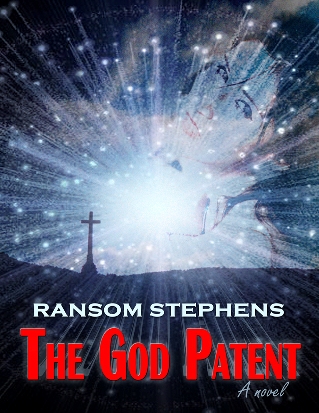 Ransom Stephens has written one of the best assessments of the future of publishing that you’re likely to read (found via Pod People). Called Booking the Future, it needs to be read – more than once. Here we talk about the ideas put forth in the article and the success of his digitally-published novel, The God Patent, which basically proves the thesis of his essay: the future of publishing is going to look very different than it does today. It will have many elements of self-publishing writ large. As he says, “Though the role of publishing has not changed – connect readers to writers – the revolution will not be led by an established publisher.” The writers who are shunned by some in the lit business are actually the innovators. Publishing is about to go very digital.
Ransom Stephens has written one of the best assessments of the future of publishing that you’re likely to read (found via Pod People). Called Booking the Future, it needs to be read – more than once. Here we talk about the ideas put forth in the article and the success of his digitally-published novel, The God Patent, which basically proves the thesis of his essay: the future of publishing is going to look very different than it does today. It will have many elements of self-publishing writ large. As he says, “Though the role of publishing has not changed – connect readers to writers – the revolution will not be led by an established publisher.” The writers who are shunned by some in the lit business are actually the innovators. Publishing is about to go very digital.
Self-Publishing Review: Your book, The God Patent, has 7200 reads and growing. How did that happen? What’s it take to become a Scribd phenomenon? Did you promote the book a lot or did it just sort of happen?
Ransom Stephens: It kinda blows me away, I’m not sure how it happened.
The whole problem is signal to noise – having your signal emerge from the noise. When I got word that “The iTunes for books” was about to open, it seemed like an opportunity to get above the noise. I didn’t know when it would happen and I didn’t know who would do it. I got everything ready and waited. Then that first day came, May 18, and I jumped on.
I’ve promoted the book pretty much the same way I would a book in print. I’ve handed out 1000 bookmarks at bookstores and literary events and set them in obvious spots where people use computers. I didn’t catch the irony of handing out bookmarks for an ebook until I was introduced at a reading and the MC said that my bookmarks must require understanding of quantum physics to make them work with the scribd e-ink.
I think the bookmarks were a waste of money. The trick with an e-book is to get links in front of people. I used email. By the end of the month, I’ll have sent email to everyone who I’ve ever sent email to or received email from (sans spammers), about 2000 people. A lot of my friends have forwarded my emails to their friends and, I think this is really the key: there are a few people who flat out LOVE my book and they are the best salespeople. They quote it on Facebook, put links all over and stuff. That’s gratifying. And it was weird when my neighbor asked me detailed questions about The God Patent. It’s set in the town where I live, and she had a lot of questions about what was modeled after what and that sort of thing.
As a public speaker, I’ve been able to “capitalize on the bad economy” by giving speeches to mainstream audiences, sometimes even for free (since there is so little work out there right now), based on topics and themes in The God Patent. For example, the woman physicist in the book, Emmy Nutter, is based on the Emmy Noether, the Einstein contemporary who I think made the greatest contribution to mathematical physics of anyone. Ever. I have a speech titled “The Fabric of Reality” that focuses on her work that I’ve given to Rotary Clubs, some new-age groups, a science café, and have pumped up The God Patent at each one.
Ultimately though, I don’t see how anything I’ve done can account for the success The God Patent has experienced at Scribd.
SPR: Do you think posting work online changes how writers approach the work. Did you write your book thinking about how the book would work on screen with the glare of a monitor, and not on paper? If not, would you approach your next book differently keeping the Scribd audience in mind?
RS: Using editing software rather than a typewriter or pen makes the biggest difference. If we were all typing away with bottles of liquid paper where our mouse pads are now, not nearly so many people would be writing or, as they say, “producing content.”
I don’t think e-books have changed how writers work, but it probably should and probably will. I didn’t write The God Patent under the assumption that it would be an e-book.
I think that ebooks will bring about a resurgence in short stories. So, no. I’m not approaching my next book with the scribd, or any e-audience, in mind. “The Sensory Deception” will be another 100,000 word novel; this one will fit more comfortably under the “thriller” heading, but will also have a lot of real science content.
SPR: In your article, you ask the question – “Have YouTube, Facebook, iTunes, Blogspot, et al reduced cultural expression?” Your implication is that they have not, but I’ll play devil’s advocate and say there are more ways to become hugely popular so artists are succeeding who might not entirely deserve the attention – i.e. they have a clever viral video, which isn’t quite the same thing as creating enduring art. Is it possible that these methods of distribution – while giving artists a lot of freedom and power – can create an aesthetic laziness where artists might not have to work so hard? That is one of the criticisms of self-publishing – that writers will avoid the rejection process and won’t improve work based on what could be a very valid rejection.
RS: The issue of what artists “deserve attention” is fascinating. I genuinely believe that, up to simple craft – grammar and spelling but more importantly, storytelling – the quality of literature is as subjective as your favorite color. At least initially. The only objective measure of quality for art, as far as I can tell, is longevity.
It’s not like publishers don’t put out plenty of crap, so the issue of “improving” work seems like a red herring to me. At least the web is democratic.
We might like to visualize the publication process as a deified thing where a cosmic committee reviews every text, examining them for content and quality before judging them “publishable.” But that’s silly. It’s actually a random walk through subjective quality control gatekeepers: interns, agents, editors and publishers – but how does one define quality in a subjective process? Some are looking for “art” and most for marketable works, but in any case, it’s random. If the intern who reads queries at an agency likes your book, then the agent, the editor’s intern, then the editor, … , the book will be published. With over 70% of conventionally published books losing money (and much higher than that if we include the cost of the author’s time at minimum wage), it begs the question of how efficiently the process is compared to a more democratic process, like that which my book, The God Patent, is going through.
The web, on the other hand, is democratic. This is why I think that existence of e-books will improve sales at bookstores; it’s a better way to vet content than the random walk to Random House. And the printed book has a long lifetime ahead of it. Don’t put your bookcases on Craigslist, yet. The vast majority of emails I get about The God Patent ask when it will be in print. When it does go to print, I can sell a couple thousand immediately.
You write, “Steven King can write a book, punt it over to Lulu, put a note on his web page and it will sell.” Do you see this happening – the most popular writers using the technology of self-publishing. After all Stephen King does not have to worry about creative control – he can write anything he wants, unlike a midlister. And he’d have traditional distribution. Do you think self-publishing could swallow up large portions of the industry, from top to bottom?
The only thing that keeps self-publishing from overwhelming the industry is the “vanity press” stigma; a stigma that is reinforced by both the publishing industry and by writers. I think this is great irony! Writers, generally a rebellious, independent-thinking group truly value whether or not a massive corporation has blessed their work – weird.
A friend of mine, another guy whose book Exalt is doing very well on scribd (and it kicks ass, by the way, the best book I’ve read in years) pointed out that the “real vanity press is Random House.” If they publish you’re work, you still have to do all the promotion, all the same stuff as when you publish it yourself, but they take 90% of the gross. If you publish it yourself you have some freedom.
That said, I’m no better. If Simon and Shuster came along and asked to publish The God Patent, I would jump on board because the publishing industry has not yet changed and these perceptions matter in the development of a writer’s career. However, if/when they come along, having the confidence I’ve gotten with the success at scribd, I’ll negotiate the contract much more carefully.
SPR: Bruce Bueno de Mesquita is called the “Next Nostradamus” for devising an accurate mathematical model that makes political and foreign-policy forecasts. Do you think the same thing is possible for forecasting midlist books? If so, given your description about how web-based searches and purchases would reveal an ad for a relevant book, how long do you think it will be before this system is advantageous for self-publishers? Basically, how long do you give the current system before it’s replaced?
RS: The trick to developing a mathematical model of any kind is getting good data to train your algorithm. It’s the axiom of BS in BS out. For things like politics, policy, and economics (e.g., stock market models) there’s a sort of Heisenberg Uncertainty Principle effect: If the model works, then it will change the system until it no longer works. Something like calculating a confidence level of whether so-and-so would like a given title isn’t nearly that hard. The problem is getting the data. The big ISPs (ATnT and Comcast) are the only ones with access to the necessary data – recordings of your every click. If they start selling it there will be a political quagmire. So, I’m not sure that it will happen any time soon. What’s more likely is that algorithms will be developed within sites, like scribd or Amazon, the way that Netflix does it. I don’t know why Amazon doesn’t have anything at all sophisticated, maybe they don’t need it, maybe they’re already too established and stodgy to identify the need. In any case, it would help small publishers a lot (especially publishers with just one title!). On the other hand, it is the sort of thing that nimble startup like Scribd might do.
I have no idea how long it will be for the current system to collapse. I made all the predictions in my Booking the Future article two years ago and thought it would have happened by now.
Napster brought down the music industry, but Apple didn’t come along with a profit model for five years. The publishing industry is plodding along without any obvious threats. It could be Google or Amazon, but I suspect a different player, someone like scribd, will come along and change everything.
SPR: One point you make that I take issue with is: “No one steals literature.” If self-publishing is thought to be more like the music industry, piracy is going to be a problem. One of the more maddening things about the attitude of self-publishing is that it’s considered different than a band self-releasing a record, when it’s not. But the more popular ebooks and ereaders become, the more people are going to be stealing work. Already bittorrent is a hotbed of free books, just like it’s a place to find movies or music. You say that authors want their books in libraries – but in the future libraries could offer POD or instant download to a reader, so aren’t piracy problems going to increase?
RS: The markets for music and literature are so different that I don’t think we can compare them. Older people read more than younger people and older people don’t go to the hassle of stealing something unless it’s really easy. Shoplifting isn’t a big deal at the bookstore down the street, but it was at the record store that used to be next to it.
The DVD industry whines about piracy, but as long as they price things reasonably, it hasn’t hurt them in any way that affects their honest customers. Movies on DVD are still for sale and still making their purveyors a great deal of money, in other words.
The other thing that’s different for books is that every study (that I’ve seen) indicates that the more copies of your book you give away, the more copies will sell. In addition to libraries, people loan books to each other far more than anyone used to lend CDs, so whatever the impact is, I suspect it’s already in the system.
SPR: Getting away from your article (sort of) – your novel, The God Patent, is about the relationship between science and religion. The lead character in your novel creates a “patent for the soul” which makes me think about Bruce Bueno de Mesquita’s equation mentioned above, or the work at Audience Science. You seem very much to be a futurist interested in uncovering the nature of reality and possibilities that most people don’t foresee. Is there a similar mechanism for coming up with the ideas in your novel and your expose on the future of publishing?
RS: I guess there must be, but I don’t know what it is. The underlying concept in The God Patent – a model for the soul that requires a well-defined step of faith rather than a great leap – is something I thought of fifteen years ago when I was a particle physics postdoc at the University of Florida. I was wandering through a swamp in the middle of the night (not generally considered a good idea, by the way) when I formulated it. Then I needed the right characters and the right situation to draw it out in a way that was alive and vibrant. It seems to have worked, but it’s not futurist.
My predictions on the future of publishing come from analysis of the situation and experience with development of the web. Particle physicists tend to think of the web as “ours” because we’ve been using widely networked computers for so much longer than anyone else. DECnet and BITnet were networks for email and copying files that date way back, they were old when I got my first email address in 1982.
The way the computing industry evolved with software taking over and hardware being subsidiary taught me a lot about how people respond to change. In 1982, if you wanted a computer to do something, you wrote software to do it. The market for PCs couldn’t operate like that – though some companies tried to sell them on that principle. The big old computer companies, IBM, Digital, HP, Sun, sold hardware. Then Apple came along and made something that was almost useable by anyone. Microsoft copied it in a way that would sit on the hardware made by other companies. Dell came up with a new way to make computers and blew IBM away. At every turn, small new companies made the big innovations, not the huge companies that hold all the resources.
This didn’t make any sense to me until I worked for a startup company. We made wireless web applications in 1999 and were running circles around the big companies. Even though we had 12 engineers on staff and they had thousands, they bought the technology from us. … until 2000 when the bubble popped and money dried up, then the startups died and the strength of the huge companies allowed them survive. That was a shame, a lot of excellent technology died with those little companies.
Getting back to the question, when I first heard about Long Tail Economics, a lot of pieces came together; in particular the use of sophisticated mathematics for marketing. That’s the big game changer. There are a lot of sophisticated pattern identification algorithms out there that can be adapted to the problem of identifying individuals who would buy obscure or niche works. Once that idea enters the playing field everything changes.
SPR: What are you working on now and how do intend to publish it? How also do you intend to further market The God Patent (aside from this interview)?
I’m about 100 pages into the first draft of my next book, “The Sensory Deception,” it’s a genuine thriller. It also has ideas taken from cutting-edge science. That’s my “contract with the reader” I write books with mind-blowing science integrated into fiction with characters facing moral and philosophical dilemmas. The contract is that the science will always be accurate and nontrivial – but never more than 6 pages in a row and always with enough plot tension that if you don’t feel like thinking through the science, you can just take the ride and still enjoy the story.
I have no idea how I intend to publish “The Sensory Deception” or the one after that “The Time Prisoner” (that one has a totally killer premise, but I haven’t sorted out the plot and, frankly, I need the experience of another novel under my belt before I’ll have the skill to do it justice).
I hope that in a year, when “The Sensory Deception” is ready to go, the market will have taken the turn. My plan, if we call it that, is for “The Sensory Deception” to build on the audience that finds The God Patent. I expect the process will be similar: e-book success followed by demand for printed and audio. Whether it goes through a big established publisher or a small boutique PoD-based publisher will depend on the terms. Fundamentally, it’s the same process authors have been using for centuries. Audience from the first book grows with the second, grows with the third, …, at some point it pays your mortgage.
The biggest takeaway I’ve gotten from the scribd success is that writers have a lot more leverage with established publishers than we tend to believe. Even writers like me whose debut work is going out through the new era. We don’t have to accept whatever they offer. We don’t have to sign off on 8% royalties for books we have to promote ourselves.
SPR: Thanks, Ransom. Congratulations on all the success and good luck with the next one.
Check out The God Patent here:
The God Patent, By Ransom Stephens
Get an Editorial Review | Get Amazon Sales & Reviews | Get Edited | Publish Your Book | Enter the SPR Book Awards | Other Marketing Services


















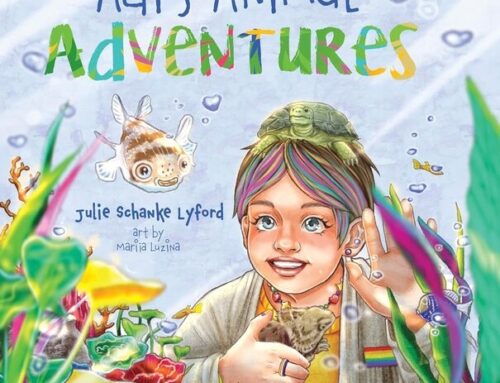
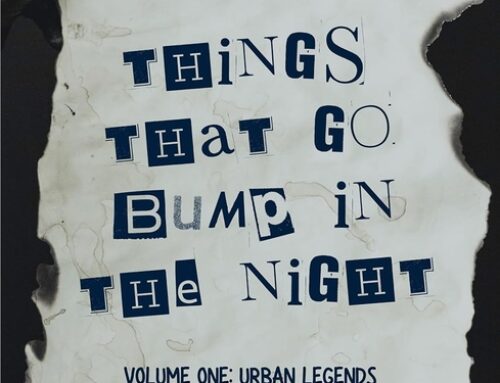
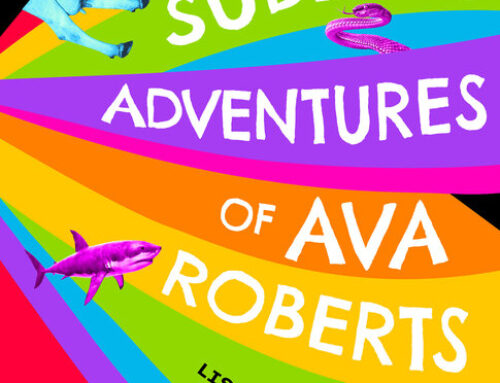
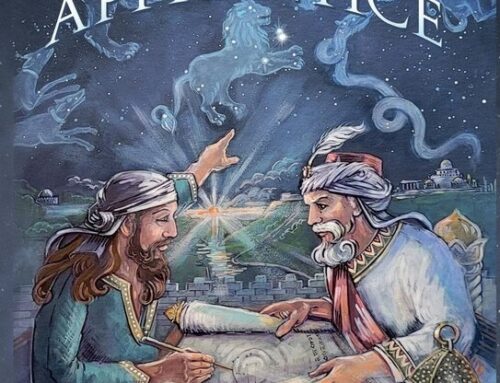
Leave A Comment